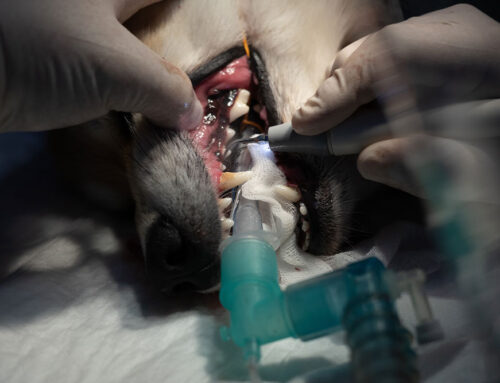Clients usually are stressed when their pet needs specialty care for a serious or chronic condition, and their experience with your practice can determine whether they return, and whether their primary veterinarian will continue to refer new cases. In addition to ensuring that clients are happy with their pet’s care, feel they received good value for their money, and feel cared for by your CSRs, optimizing your referral process can ensure complete client satisfaction. VESPECON can provide you with tools to improve the client experience, and offers a few tips to ease each referral process step.
Before the veterinary referral visit
The referral process starts with the client’s primary veterinarian, long before they first visit you. Ideally, referring veterinarians should consult with a specialist prior to in-person referral, to ensure they’re on the right track with case management, establish whether referral is needed, and determine an appropriate timeline. Working up cases prior to referral eliminates unnecessary specialist visits, which saves the client time, money, and frustration. Phone consultations can serve this purpose, but time constraints make consulting on every case prior to referral an impossible task. Joining VESPECON can help solve this problem, because referring veterinarians can virtually consult with our on-demand specialists, who will guide them through case management and refer them to you at the right time.
Obtaining records prior to the visit can also stress clients, who want to ensure the specialist has all necessary information to help their pet. Establish a standard protocol for requesting records from the referring veterinarian, and follow up if you don’t receive them. You can also send clients new patient paperwork, instructions, and estimated costs ahead of their visit, ensuring they know what to expect and arrive prepared. VESPECON can make the appointment process easy for clients—we act as a liaison between offices, coordinate the visit, and ensure a smooth case transition.
During the veterinary referral visit
Taking their pet somewhere new for potentially expensive specialty care can be concerning for clients. Put them at ease by explaining each part of the visit and sharing your exam findings in person. Consider adopting Fear Free or low-stress handling techniques that will help make a good first impression and gain the patient’s trust. If a client mentions their pet might be difficult during their exam, coordinate with the referring veterinarian to provide anti-anxiety medications prior to the visit.
If the pet needs a procedure, first offer the client an estimate. Plan to spend enough time in the exam room to thoroughly answer client questions and ensure they are comfortable with their pet’s treatment plan. Offer alternatives if the client can’t afford the recommended treatment, help them understand the value of the specialized care being offered, and explain potential outcomes for each treatment path. Consider offering third-party payment options, such as CareCredit or Scratch Pay, to ease the financial burden and help clients provide the care their pet needs.
After the veterinary referral visit

Prompt communication with the referring veterinarian after each visit can prevent common client issues and ensure they follow the recommended treatment plan. If you’re sending the patient back to the referring veterinarian for continued care, or for diagnostics between specialty visits, make the process clear to all parties to avoid confusion. Clients shouldn’t have to act as a go-between to relay information between veterinarians, and ensuring everyone is on the same page helps maintain trust. When the client feels confident in their pet’s care plan and receives consistent information from each veterinarian, they’re more likely to comply with recommendations, which results in better patient outcomes.
VESPECON can help enhance communication between specialists and referring veterinarians, and can provide clients the help they need to schedule prompt follow up visits. VESPECON’s team of consulting specialists can continue to provide case guidance after care is transferred back to the referring veterinarian, so they’ll know when and if they need to return for in-person specialty care.
Joining VESPECON as a veterinary specialist can simplify and ease the referral process for your practice and for your clients. If you’re ready to experience the VESPECON difference, contact us to get started.







Leave A Comment